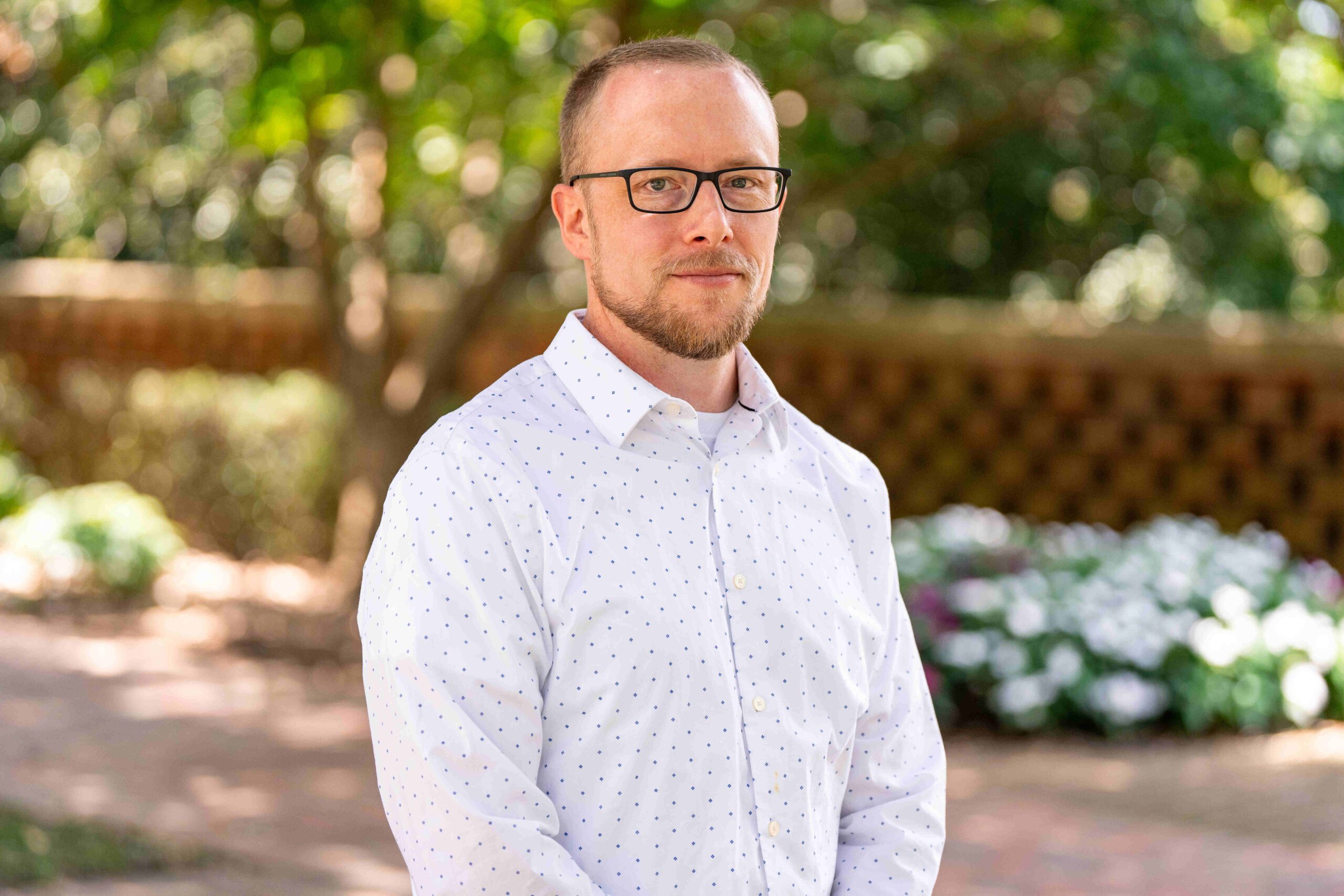
Gary Guillet grew up in Rhode Island before heading south to obtain his B.S in Chemistry degree from the University of Florida in 2003. He worked in Tampa, FL for two years, including a year teaching high school, before attending graduate school, also at the University of Florida, graduating with his Ph.D. in Inorganic Chemistry in 2010.
Dr. Guillet's post-doctoral work was with Dr. Leslie Murray at the University of Florida, thrice a Gator, working on the development of novel macro-bicyclic cages to harness metal-metal cooperativity with first-row transition metals. Following this work, he began as an Assistant Professor of Chemistry at Armstrong Atlantic State University in Savannah, GA in 2013. He earned tenure and promotion in 2019 from, after two university name changes, Georgia Southern University Armstrong Campus. He moved to Furman University in 2023 as an Associate Professor of Chemistry.
Over his career he has been awarded over $1.5 million in external funds as PI and co-PI, primarily from the National Science Foundation. He has worked with and trained over 40 undergraduates students. All of his publications have undergraduate co-authors. In his free time he is at home with his two sons and wife.
Education
- Ph.D., University of Florida
- B.S., University of Florida
Research Interests
Control of Coordination – Control of Properties
Dr. Guillet has interests directed at highly controlled coordination chemistry and the resultant properties of these metal complexes. In one area, his group develops new extended metal atom chain (EMAC) complexes of iron and cobalt, which are important for understanding the nature of metal-metal bonding in varying coordination geometries and the factors that affect the physical properties of these unique systems. By controlling the ligand framework around the central tri-metallic core, EMACs can be intentionally designed with various high-spin, ground state electronic configurations. These interactions are facilitated by small intermetallic distances and direct M-M exchange. An expanded library of more stable EMACs will lead to increased understanding of how to control multiple, direct metal-metal bonds and the factors that lead to high-spin magnetic ground states. They also open an opportunity to investigate multinuclear metal cooperation in reactivity.
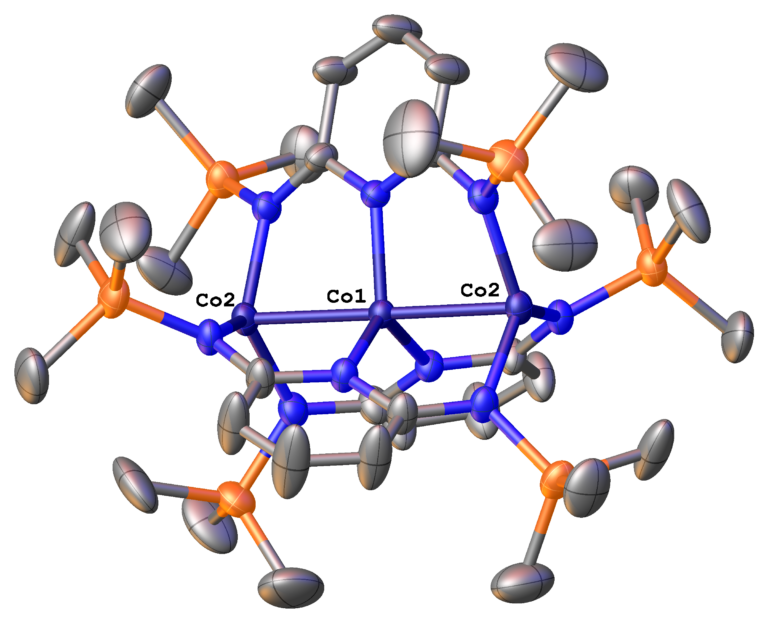
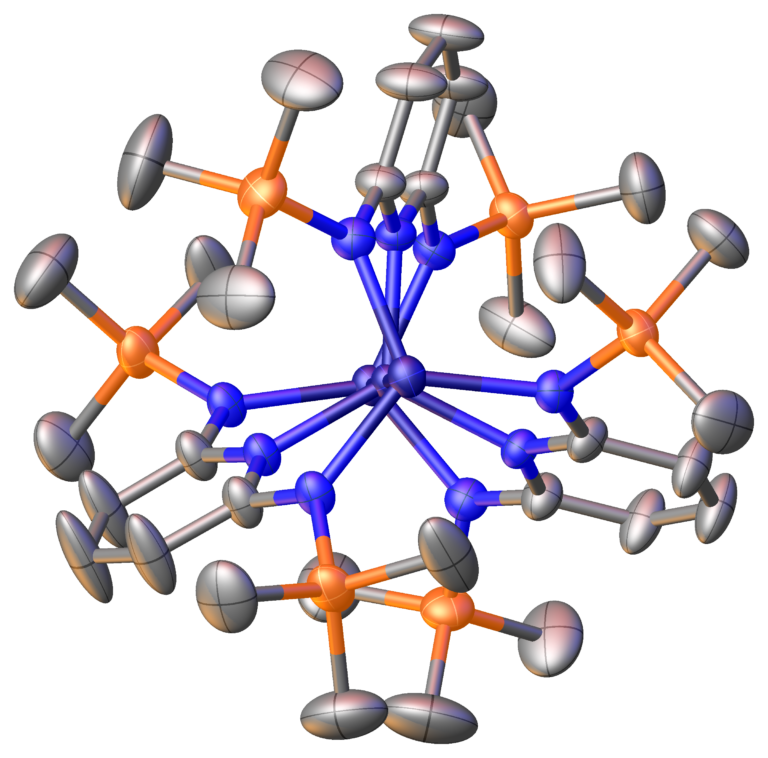
Another project focuses on the design of sterically encumbering pincer ligands, formed via Staudinger reactions, to control the organometallic chemistry of Group 10 metals like Nickel. Using relatively straightforward syntheses, a wide range of ligands can be formed using an organoazide and a chosen phosphine. These complexes have been shown to promote interesting C-C and C-Heteroatom bond forming reactions and very rare coordination chemistry, believed to be driven by the steric pressure of the ligand.
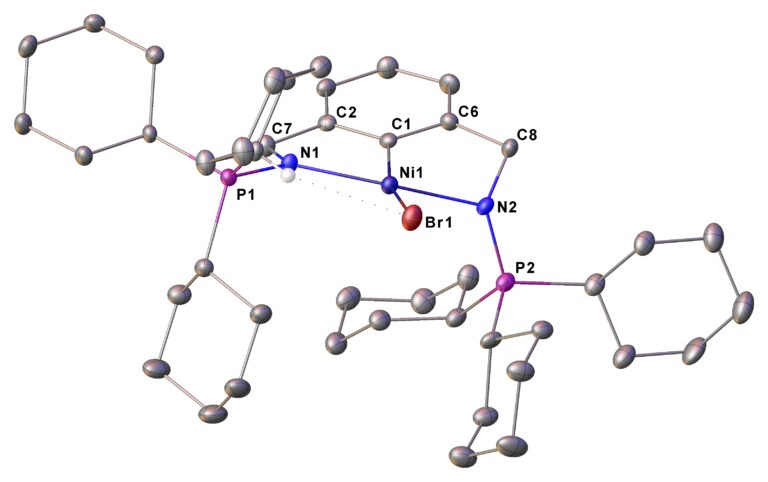
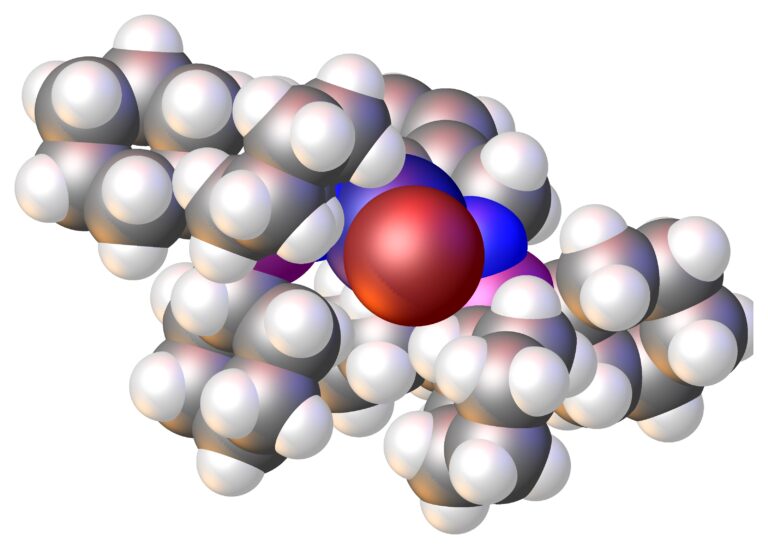
Publications
Please list any published articles or books that you may have written; separate each with a semicolon.
- Guillet, G. L.; Arpin, K. Y.; Boltin, A. M.; Gordon, J. B.; Rave, J. R.; Hillesheim, P. C. “Synthesis and Characterization of a Linear Triiron(II) Extended Metal Atom Chain Complex with Fe-Fe Bonds”, Inorg. Chem., 2020, 59, 11238-11243.
- Guillet, G. L.; Pitts, S. L.; Sheriff, K. W.; Rucker, D. N.; Rogers, A. L.; “Synthesis, characterization, and crystal structures of organonickel(II) complexes coordinated to novel 1-bromo-2,6-bis{[(l5-phosphanylidene)-imino]methyl}benzene NCN-pincer ligands”, Acta Crys. C, 2019, C75, 1381-1388.
- Guillet, G. L., “Inorganic Nomenclature: Naming Coordination Compounds” Virtual Inorganic Pedagogical Electronic Resource, In-Class Activity, Uploaded 7/31/2017.
Additional Professional Activity
- National Science Foundation: Chemical Synthesis Division, Research at Undergraduate Institutions Grant: “RUI: Extended metal atom chain complexes of Fe and Co supported by a C3 symmetric, scaffolded ligand platform”, RUI-2245569, PI: G. Guillet; Co-PI: J. Bates, $388,050, 8/1/2023-7/31/2026.
- National Science Foundation: Major Research Instrumentation Grant: “MRI: Acquisition of a Single-Crystal X-ray Diffractometer to Create an XRD Center Supporting the PUIs in Georgia for Interdisciplinary Research, Training, and Teaching”, MRI-2215812. PI: G. Guillet; Co-PI: C. Padgett, B. Quillian, A. Saha. $289,054, 9/1/2022-8/30/2025.
- National Science Foundation: Chemical Synthesis Division, Research at Undergraduate Institutions Grant: “RUI: Linear trimers of late 3d transition metals (Fe, Co, Ni) with unique structural, magnetic, and electrochemical properties”, RUI-1762401, PI: G. Guillet, $205,461, 9/1/2018-9/1/2022.
0